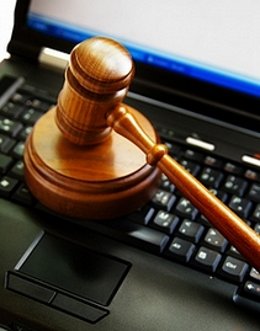Suing An Internet User For Libel
 The content of this blog refers only to the Philippine scenario. We all know that laws vary from country to country and so I wish to say beforehand that any legal matter that I will mention here refers to Philippine statute only. What I write here today is based on a libel suit filed against activist-lawyer Argee Guevarra, by the famous plastic surgery doctor, Vicky Belo. The case was filed against the lawyer for allegedly maligning the doctor in his Facebook account.
The content of this blog refers only to the Philippine scenario. We all know that laws vary from country to country and so I wish to say beforehand that any legal matter that I will mention here refers to Philippine statute only. What I write here today is based on a libel suit filed against activist-lawyer Argee Guevarra, by the famous plastic surgery doctor, Vicky Belo. The case was filed against the lawyer for allegedly maligning the doctor in his Facebook account.
Atty. Guevarra said that he welcomed the move and he says it was “an opportunity to invite public attention to the hazards of cosmetic surgery clinics performing surgeries with untrained and unskilled medical practitioners and advertising such services as safe” and that the the suit is the first Facebook libel case in the country where the accuser does not even belong to the defendant’s network of Facebook friends.
Belo protested Guevarra’s shoutouts referring to her as “Reyna ng Kaplastikan, Reyna ng Kapalpakan” (Queen of False Pretenses, Queen of Incompetence) and updates calling for a national patients’ boycott of Belo clinics in his Facebook account. The alleged libelous statements by Guevarra in his Facebook account were gathered by Dr. Belo’s general manager who managed to add herself to Guevarra’s network of 1,472 friends.
Guevarra’s counsel Atty. J.V. Bautista said the suit would not prosper because there’s no such thing as Internet libel. “The alleged defamatory statements are privileged communication and are per se, not libelous. The statements of Atty. Guevarra fall under constitutionally protected exercise of free speech,” Bautista said.
In the news article at ABS-CBN News, Atty. J.V. Bautista, in conclusion said, “Finally, the analogous libel case of Alfonso Yuchengco/Pacific Plans vs. Philip Piccio, arising from a blog written by Mr. Piccio against Pacific Plans, was ordered dismissed by the Department of Justice which ruled that there is no such thing as Internet libel since Art. 355 of the Revised Penal Code strictly provides that libel can only be committed by means set forth therein (writing, printing, radio etc.) and does not include the Internet. “
While most of us and the Internet café customers may not get into such situation, it is still advisable that we exercise restraints when shouting out in social networking sites and public forums. We should also be very careful on whom we will have as friends in our network. It is also worth watching what will be the decision of the court on the case I narrated.




In many cases horrible problems have been avoided for the community as a result of anonymous blogging. This includes whistleblowing for white-collar criminals, community awareness when sexual predators move into the neighborhood, and many other alerts that are of great community benefit.
Benefits notwithstanding, you can’t make an omelette without breaking eggs and anonymous free speech on the Internet is one such omlette. There is no such thing as free speech, there is always a cost. Sometimes that cost is acceptable, moreover desirable, particularly in the case of positive community awareness. But often their many false and deceptive rumors, and libelous attacks are motivated only by hatred and vindictive antisocial promptings. More often than not, these serial cyber defamers have some type of antisocial personality disorder. They have nothing better to do than hurt other people, in fact they are actually fueled by other people’s pain. Normal people like 97% of the readers of my comment cannot begin to relate to how these people think. Stop for a moment and imagine not having a conscience….. is simply impossible.
A concerted, focused and malicious Internet smear campaign can be as devastating for a person that relies on his or her reputation for employment as a fire can be for a farmer who loses his fields, barns, and livestock.
Respectfully submitted by Michael Roberts. Internet Libel Victim’s Advocate.
http://www.Rexxfield.com